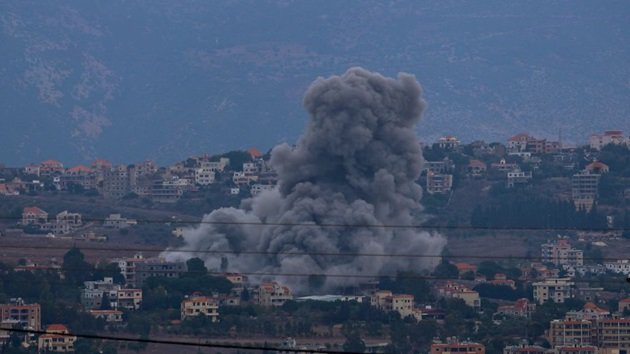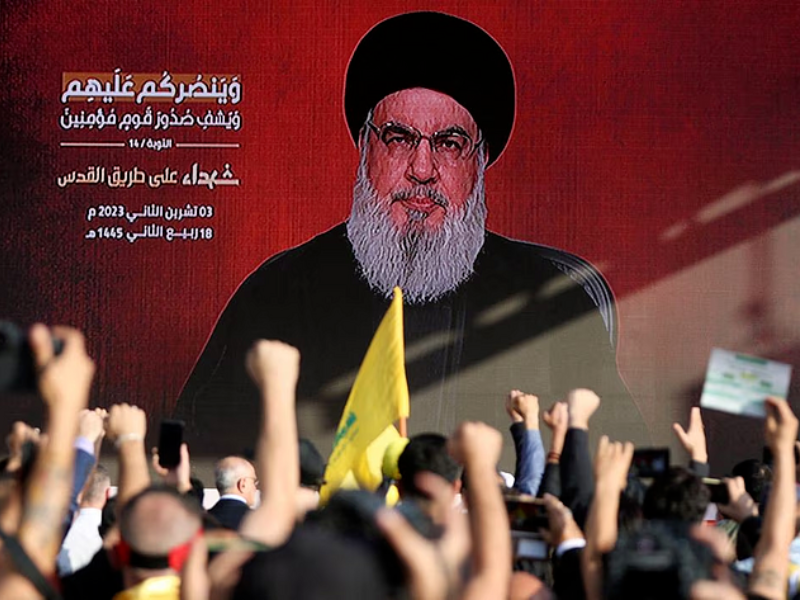Islamabad: Within minutes of Benjamin Netanyahu’s speech to the UN General Assembly on Friday evening, global media relayed headline news—Israel had pounded Beirut, the capital of Lebanon with huge air strikes.
Table of Contents
Unprecedented Bombing Shocks Beirut Residents
Commoners in Lebanon, who have grown used to night raids of the Israeli airplanes in the south, could not believe their eyes in the extraordinary aggressiveness of the attacks on Friday. A local man said that the bombing went on and on and it was the worst he had ever seen. Another resident said the Dahieh neighborhood of South Beirut was “rocked” when Israeli bunker-buster missiles struck there and the impact resembled an earthquake.
Residential Buildings Destroyed, Casualties Reported
Israel’s air strikes had for most of the time targeted southern Lebanon in the past few days and the attack on Beirut on Friday was relatively unusual. Explosions in apartment blocks demolished people’s homes and claimed human lives of both women and children. Rumors began to emerge that the strikes had got and maybe eliminated Hezbollah chief Hassan Nasrallah, however, no confirmation was enjoyed soon.

Israel Claims Assassination of Hezbollah Chief
On Saturday afternoon I learned from an Israeli military report that the main aim of the airstrikes was Hezbollah Secretary General Hassan Nasrallah and that he has been “eradicated”. No comments from the opposite side and no accusations made by Hezbollah, the hours of silence led people to think that this is the truth from the Israeli side. Finally, it emerged that, indeed, Hezbollah had assassinated Nasrallah.

Nasrallah’s Legacy and Israel’s History of Targeted Killings
Hassan Nasrallah has been heading Hezbollah since his predecessor’s assassination in 1992, and he was an attractive face for the organization and a long-time target of Israeli actions. His death is considered a turning point in the continuing struggle between Israel and Hezbollah to bring the Middle East closer to deeper war. Amidistani an expert in regional politics, personally distinguished Nasrallah’s assassination as the most terrible blow for Hezbollah as Mussawi, the leader of an organization, was killed by Israel in 1992.
A Volatile Regional Future
Predicting the political situation, Senator Mushahid said that the region is likely to witness new waves of anti-Israeli sentiments and more violence. He stressed that Hezbollah will remain an effective player in the fight against Israel even after the death of its leader.
As is known, Israel actively engages in targeted killings in the Middle East, with the latest spectacular operation involving the assassination of Hamas leader Ismail Haniyeh in Tehran. Nasrallah’s death, which people regarded as another loss for Iran, exacerbates the tensions and pressures placed on the already unstable area.
Iran’s Possible Response
Tehran, however, has refrained from directly confronting Israel even when it retaliated in a limited manner after an Israeli air strike on a Iranian embassy in Damascus. However, assassination of Nasrallah may shift Iran’s stand on the issues. Senator Mushahid does not seems confident, he can attribute this to the message that Ayatollah Khamenei had sent out where he supported Hezbollah but did not call for Iranian support.
The Risk of All-Out War
Despite the fact that recent tensions have risen to heights never seen before, most experts still predict that a fully fledged war will not be witnessed. Senator Mushahid pointed out that the region is on the brink of conflict than ever before, however, it is not headed to a full-blown conflict yet, given the recent statements by the U.S. President for peace and diplomacy.
U.S. Cautiously Monitors the Situation
Washington has supported Israel in terms of security but at the same time, it has argued that it had no knowledge of the attacks against Nasrallah. Despite its support for Israel, the U.S. has also declared that direct Iran’s involvement in the conflict shall prompt a response by the U.S.
Hezbollah’s Future
Hezbollah experts say that despite Israel’s attempts to weaken it, the organization is still a powerful force capable of retaliating the invasion of Lebanon by Israel in 1978. It would render certain damage to the group but it is a movement that will continue to defy Israel and guaranteeing a continuance of the cycle of hostility in the Middle East.
READ ALSO: Sharif Urgent Call for Justice on Gaza, Kashmir at 79th UNGA

